
What Is Tinnitus?
Tinnitus is a condition that causes hearing sounds that are not there, but these sounds originate in the ears, not in the brain. Tinnitus is not a mental illness, although it can cause stress that leads to actual mental illness. Tinnitus can be objective, the sounds also heard by other people, or subjective, causing uniquely personal distress. Objective tinnitus, relatively rare, is caused by a malfunction of a muscle or blood vessel that makes noises the doctor can also hear. Subjective tinnitus accompanies about 85% of all inner and middle ear conditions, and can be a ringing, whooshing, roaring, or pinging persistent sounds nobody else can hear.
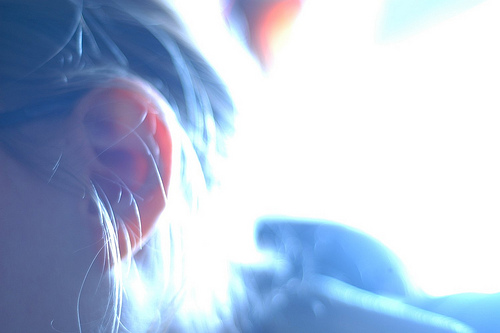
What Causes Tinnitus?
In younger people, tinnitus usually results from repeated exposure to loud noise. The major contributing factor may be frequent attendance at noisy clubs and parties, or attending too many rock concerts, or participating in shooting sports (skeet, trap, and so on) without adequate hearing protection. In older people, the most frequent culprit is taking too much aspirin. Diuretic drugs, some kinds of chemotherapy, and some antibiotics can also cause the condition. Tinnitus also results from sounds transmitted along the carotid artery; either atherosclerosis or structural abnormalities in or along the artery can cause the condition. In very rare cases, tinnitus is caused by brain tumors.
- Important notification about information and brand names used in this slideshow!
- Photo courtesy of Evil Erin by Flickr : www.flickr.com/photos/evilerin/3403945228/
- Emedicine. Tinnitus: Overview. http://emedicine.medscape.com/article/856916-overview. 19 February 2013. Accessed 9 October 2013.
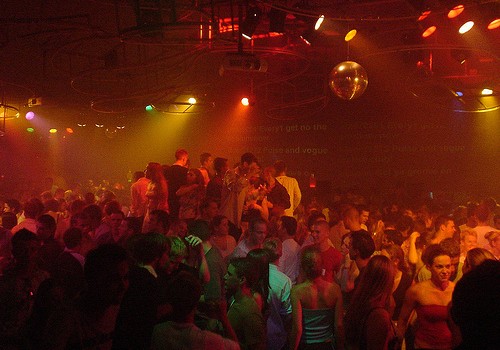
Noisy Clubs And Tinnitus
People who attend noisy clubs frequently have roaring, ringing, or other odd sounds in their heads the next morning. At 100 decibels, sound in a noisy club has literally 100,000 times the power on the ear canal as a 50-decibel, ordinary person-to-person conversation. Just 30 minutes in a noisy club is enough to cause a "temporal threshold shift," in which the hairs lining the inner ear canal that pick up vibrations of sound simply wear out. Until they recover, the ability to hear high pitches is lost. If the hairs are "bent" in a certain way, the brain picks up the short circuit in electrical impulses between the ears as a sound that just won't go away until these microscopic hairs are healed. Recovery is possible if exposure is limited to 2 to 3 hours, but it may be necessary to stay in quiet places for several weeks. Otherwise the hearing loss gets worse and worse and becomes permanent.
- Important notification about information and brand names used in this slideshow!
- Photo courtesy of *sax by Flickr : www.flickr.com/photos/saxonmoseley/24524378/
- British Tinnitus Association. Tinnitus and Heaing Loss. http://www.tinnitus.org.uk/tinnitus-hearing-loss. Accessed 8 October 2013.
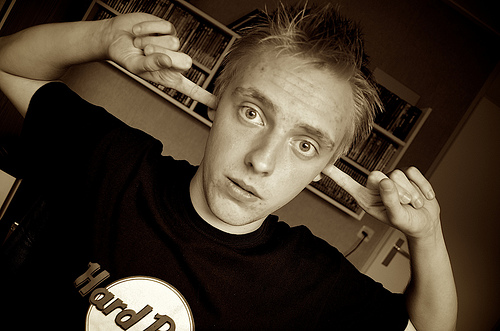
Statistics On Tinnitus
In most of the industrialized world, between 10 and 15% of the adult population has tinnitus. This means that hundreds of millions of people around the world deal with the condition. Tinnitus becomes increasingly common with increasing age, but up to 13% of children have tinnitus. Even people who don't ordinarily have to deal with the condition may start noticing their own cranial blood flow when they are in extremely quiet surroundings. In 1953, a British researcher recruited college students who did not have tinnitus to sit in a specially constructed soundproof room. Over 93% of students in the study reported some form of tinnitus when exposed to extreme quite.
- Important notification about information and brand names used in this slideshow!
- Photo courtesy of Peter Gerdes by Flickr : www.flickr.com/photos/petergerdes/2858707987
- WebMD. Tinnitus: Topic Overview. http://www.webmd.com/a-to-z-guides/ringing-in-the-ears-tinnitus-topic-overview. Accessed 8 October 2013.
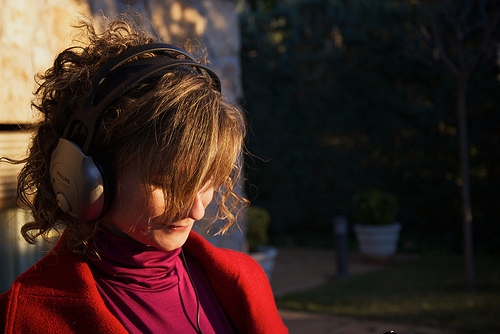
Prevention : Avoid Noise
Lowering your exposure to loud noise is also critical to avoiding tinnitus. A noisy bar, a jackhammer, or jet engine noise is 100,000 to 10,000,000 times louder than a bird's song, a conversation with someone you love, or even the cooing of a baby (although the crying of a baby can be almost as noisy as a jackhammer). If you can't physically stay away from places where loud sounds occur, use hearing protection. Ear plugs, which should not be shared, are inexpensive and extremely helpful. You can buy ear plugs in the sporting goods sections of most major department stores. Ear plugs or ear mitts are essential when shooting, especially for skeet and trap events.
- Important notification about information and brand names used in this slideshow!
- Photo courtesy of Rubs by Flickr : www.flickr.com/photos/rubsology/5381562346/
- City College of New York. How Loud Was That Noise? http://condor.admin.ccny.cuny.edu/~ms6785/page4.html. Accessed 8 October 2013.
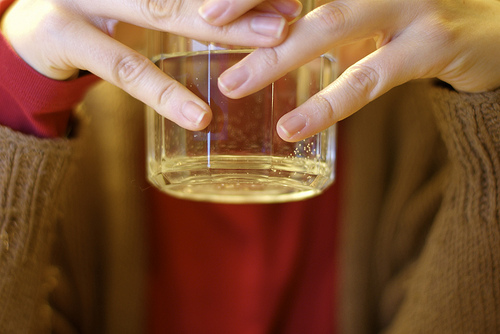
Prevention : Drink Enough Fluid
Dehydration is a common cause of tinnitus. The membrane lining the inner ear "dries out" so that the tiny hairs that attach to nerve endings fall on each other and "short circuit" nerves. The brain interprets this electrical signal as sound. People become dehydrated when they start diuretics for high blood pressure or fluid retention and, ironically, don't follow the directions to drink more water even while taking the pill that makes them urinate more often. You don't have to drink so much water that you slosh. Just 1 or 2 cups (250-500 ml) of water, not even 1 or 2 glasses of water (500-1000 ml) is usually enough to make a difference when dehydration is the major contributing factor.
- Important notification about information and brand names used in this slideshow!
- Photo courtesy of kizzzbeth by Flickr : www.flickr.com/photos/31403417@N00/6495791495/
- Yellin MW, Waller M, Roland PS. Dehydration testing and the diagnosis of Menière's disease: case report. J Am Acad Audiol. 1993 Nov. 4(6):432-6.
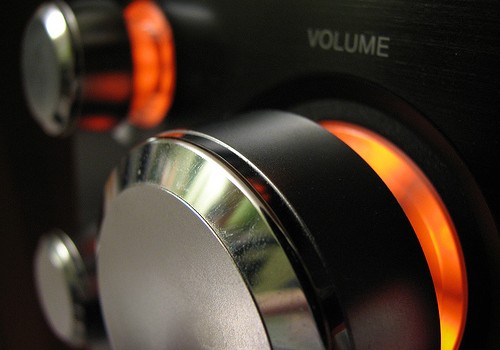
Prevention : Keep The Volume Down
Let's face it. There is no special section at rock concerts, symphony performances of the 1812 Overture, or building demoliton sites for people who have tinnitus. If you do target practice with a gun or pistol, you will exposure your ears to sound that is 1,000,000,000,000 times more powerful than ordinary conversation. There is just no way you can stay in physical proximity to loud noise without at least temporary hearing damage unless you use hearing protection. Ear plugs help. They cost less than $1 a pair and are available wherever guns and pistols are sold, and also online. At shooting events, consider wearing earmuffs, which generally cost less than $20 a pair and are available online.
- Important notification about information and brand names used in this slideshow!
- Photo courtesy of philipp daun by Flickr : www.flickr.com/photos/daunphilipp/74231709/
- See The Firing LIne. http://thefiringline.com/forums/showthread.php?p=3511372. 8 October 2013.
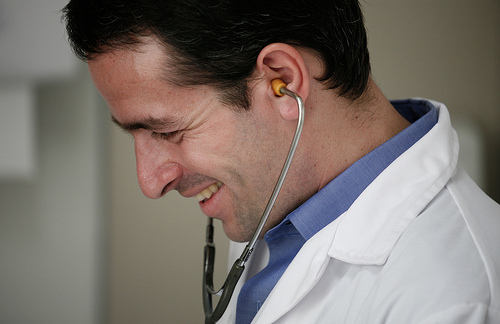
Diagnosis Of Tinnitus
The key diagnostic symptom for tinnitus is hearing sounds that no one else hears. Tinnitus differs from "imaginary" illnesses in that it doesn't serve a social purpose and it doesn't make the person feel better; it can't be turned off. Tinnitus differs from hallucinations in that it doesn't seem to happen outside the body. It is experienced as something going on inside one's own head. The sound may or may not occur in synchrony with heartbeat and/or breathing, and it may be described as a sensation of ringing, clicking, crickets, tree frogs, blowing wind, drum beats, or other annoying sound, and it may be constant or it may come and go.
- Important notification about information and brand names used in this slideshow!
- Photo courtesy of Alex Proimos by Flickr : www.flickr.com/photos/proimos/7015556295/
- en.wikipedia.org/wiki/Tinnitus
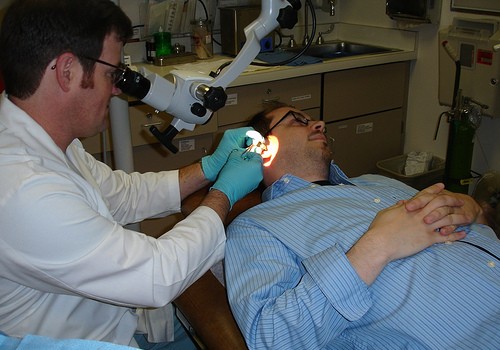
Tinnitus Treatment
There are lots of things you can do to reduce the symptoms of tinnitus. It usually helps to cut back on or eliminate the use of aspirin and caffeine. It's especially important not to take Bufferin, which is a combination of aspirin and caffeine. Other over the counter pain relievers may also be problematic. It also helps to avoid crash diets. It's OK to skip a couple of meals, but it you stay on a highly restricted low-calorie diet for 4 or 5 days, fluid balances in your ears can change in ways that make tinnitus worse. Avoid loud noises, and mask your tinnitus with white noise, such as running a fan or using noise-canceling headphones.
- Important notification about information and brand names used in this slideshow!
- Photo courtesy of Patrick Crowley by Flickr : www.flickr.com/photos/mokolabs/158992946/
- WebMD. Ringing in the Ears (Tinnitus): Home Treatment. http://www.webmd.com/a-to-z-guides/ringing-in-the-ears-tinnitus-home-treatment. Accessed 8 October 2013.

Psychological Treatment
Even though tinnitus is all in your head (or maybe also in the muscles of your face and neck or in the arteries leading to your head), it is not a psychological condition. When tinnitus bothers you all the time, however, psychological conditions may result. The most common psychological complication of tinnitus is depression. Many people become depressed when someone suggests that their tinnitus is caused by atherosclerosis of the carotid artery or cancer. The threat of these life-changing and potentially life-ending diseases is a major downer. The best thing to do is to get checked out by your doctor. Then if you are still depressed, maybe simple antidepressant therapy will help.
- Important notification about information and brand names used in this slideshow!
- Photo courtesy of Jared Horn by Flickr : www.flickr.com/photos/ajremix/4784193788/
- Rister R. Healing without Medication. Basic Health Books, 2003.



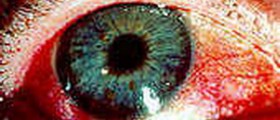




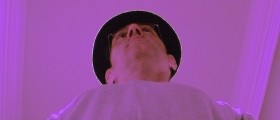
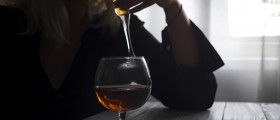
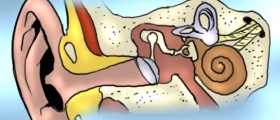
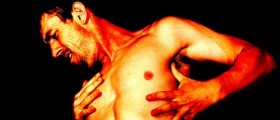
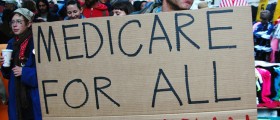
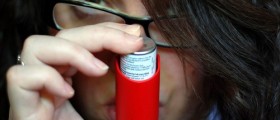
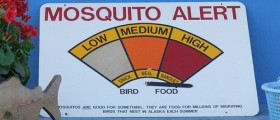

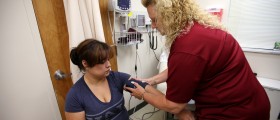
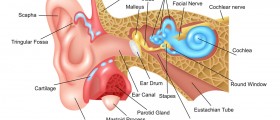
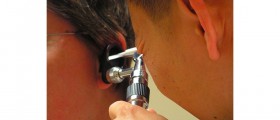
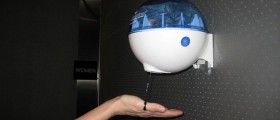
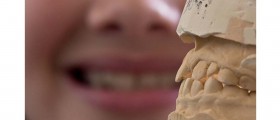



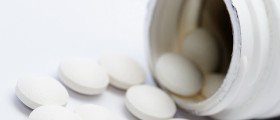
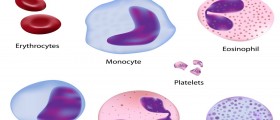
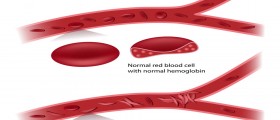
Your thoughts on this
Loading...